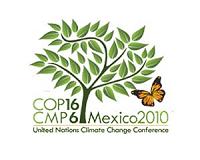 |
Washington (AFP) Dec 7, 2010 In a world with twice as much carbon dioxide in the atmosphere, plants could grow larger and create a cooling effect on a warming globe, but could not halt or reverse climate change, NASA said Tuesday. One of the main mysteries scientists face with climate change is how to project it over time, particularly how to account for Earth's reaction to warmer temperatures, a phenomenon known as "feedback." It has long been known that plants -- which use carbon dioxide, sun and water to grow through the process of photosynthesis -- are able to adapt to higher carbon dioxide levels by using nutrients more efficiently and growing bigger leaves. "The process is called 'down-regulation.' This more efficient use of water and nutrients has been observed in experimental studies and can ultimately lead to increased leaf growth," NASA said in a statement. But just what effect that increased plant growth would have on global warming has been difficult to predict. NASA's new computer modeling effort, described in the December 7 issue of the journal Geophysical Research Letters, calculated the plants' cooling effect to be -0.3 degrees Celsius (-0.5 Fahrenheit) globally. However that number falls well short of the temperature increase of two to 4.5 degrees Celsius (3.5 to 8.0 Fahrenheit) that is the standard basis for many global warming modeling simulations. "This feedback slows but does not alleviate the projected warming," said Lahouari Bounoua, lead author of the paper and expert at the Goddard Space Flight Center outside Washington. Bounoua's model found that warming was on the lower scale of the widely accepted range when carbon dioxide was doubled, projecting warming of 1.94 degrees C globally, not including the 0.3 C drop for feedback. Previous climate models have not included the larger leaf growth that would come from "down-regulation," and have projected little to no cooling from vegetation growth, the US space agency said. "This is what is completely new," said Bounoua, referring to how the model was adapted to include changed leaf growth. "What we did is improve plants' physiological response in the model by including down-regulation. The end result is a stronger feedback than previously thought." The latest research shows "how, over time, scientists will create more sophisticated models that will chip away at the uncertainty range of climate change and allow more accurate projections of future climate," NASA said. Having more precise projections will help in the search for solutions, said study co-author Forrest Hall of the University of Maryland-Baltimore County and Goddard Space Flight Center. "As we learn more about how these systems react, we can learn more about how the climate will change," said Hall. "Each year we get better and better. It's important to get these things right just as it's important to get the track of a hurricane right. We've got to get these models right, and improve our projections, so we'll know where to most effectively concentrate mitigation efforts."
Share This Article With Planet Earth
Related Links Climate Science News - Modeling, Mitigation Adaptation
 WikiLeaks adds twist to climate hopes
WikiLeaks adds twist to climate hopesCancun, Mexico (AFP) Dec 6, 2010 Climate negotiators Monday hailed a brighter mood in often torturous global talks, but disclosures by WikiLeaks of hard-nosed behind-the-scenes diplomacy threatened to reopen fissures. A two-week session in the Mexican resort of Cancun is looking to make incremental progress toward a new treaty to fight climate change, which UN scientists warn threatens severe effects for the planet if unche ... read more |
|
| The content herein, unless otherwise known to be public domain, are Copyright 1995-2010 - SpaceDaily. AFP and UPI Wire Stories are copyright Agence France-Presse and United Press International. ESA Portal Reports are copyright European Space Agency. All NASA sourced material is public domain. Additional copyrights may apply in whole or part to other bona fide parties. Advertising does not imply endorsement,agreement or approval of any opinions, statements or information provided by SpaceDaily on any Web page published or hosted by SpaceDaily. Privacy Statement |